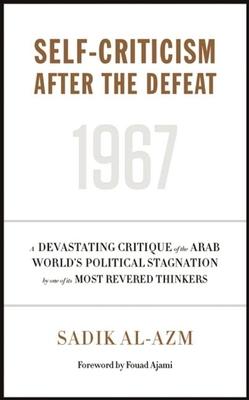"A unique book. . . . al-Azm sought to strip Arab thought of its belief in fate and folk tales and superstition. . . . He told his people the sort of truths that outsiders are too embarrassed to tell, even when they were themselves able to see these truths."--Fouad Ajami
The 1967 War--which led to the defeat of Syria, Jordan, and Egypt by Israel--felt like an unprecedented and unimaginable disaster for the Arab world at the time. For many, the easiest solution was to shift the blame and to ignore some of the glaring defects of Arab society.
Hailed as one of the foremost Arab intellectuals of recent decades, Sadik al-Azm was one of the few to challenge such a view in his seminal Self-Criticism After the Defeat. In it, he offered a penetrating analysis that probed deep into Arab society, and reasoned that Arabs had to embrace democracy, gender equality, and science to achieve progress.
Self-Criticism After the Defeat represents a milestone in modern Arab intellectual history. It marked a turning point in Arab discourse about society and politics on publication in 1968, and spawned other intellectual ventures into Arab self-criticism. This is the first translation of the work into English.
Born in Damascus in 1934, Sadik al-Azm is professor emeritus of modern European philosophy at the University of Damascus, Syria. He earned his PhD (1961) from Yale University, and was visiting professor in the department of near Eastern studies at Princeton University until 2008.
